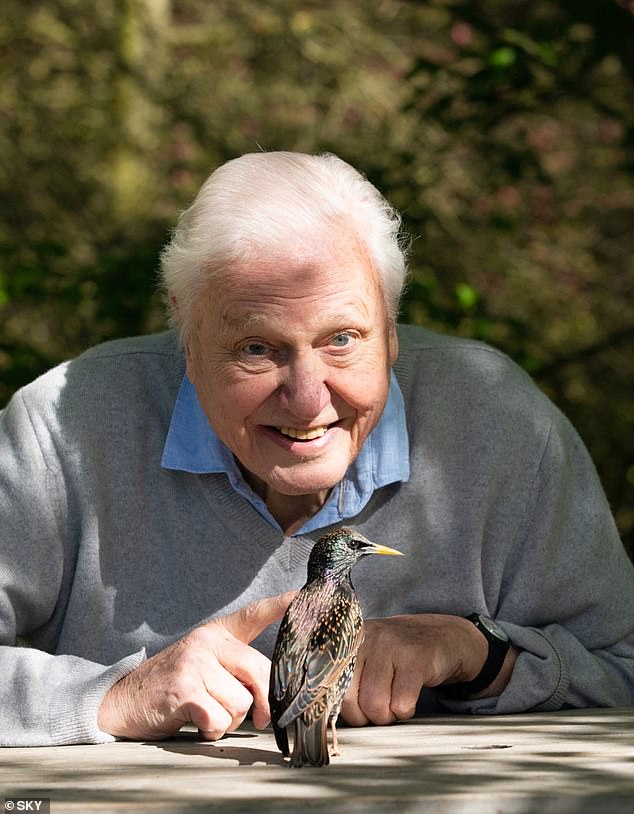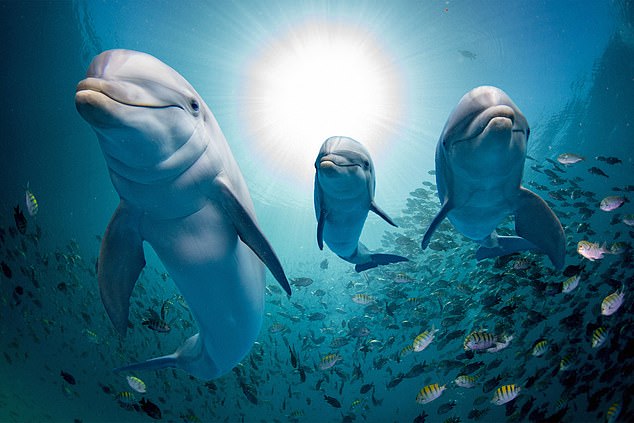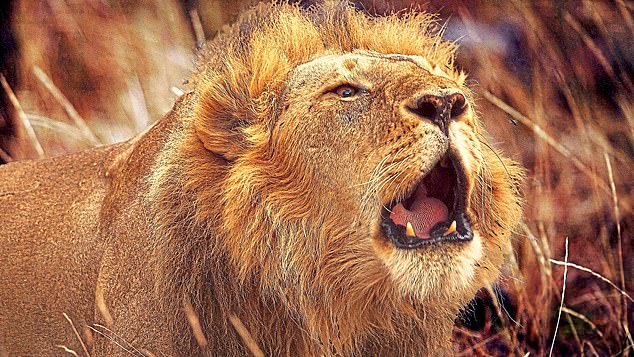<!–
<!–
<!– <!–
<!–
<!–
<!–
Secret world of sound (Sky Nature)
Prisoner (BBC 4)
New technology obsesses Sir David Attenborough. So it’s no surprise that when a camera with 40 directional microphones that can locate a vole burrowing under a snowfield is developed, he champions it.
His life in broadcasting has seen astonishing advances in film technology. After all, the time span between the Wright Brothers’ maiden flight in 1903 and the first moon landing in 1969 was only 66 years. Sir David is still going strong after 72 years on television.
“In 1952, when I joined the BBC,” he reminded me on one of the many occasions on which I was lucky enough to interview him, “in London you could only watch television, and only for about three hours a day, on a given day. small screen.’
It has been a driving force for so many innovations. As director of BBC2 in the 1960s, he oversaw the introduction of color television to Britain, and it was in Attenborough’s landmark Life documentaries that many new filming methods were first shown: stop-motion photography of plants and trees for an entire year, ultra-high images High-definition videos of insects through microscope lenses, gyroscopic cameras under helicopters that follow herds across the savannah and drones that show us whales from previously unimaginable perspectives.

New technology obsesses Sir David Attenborough. He has been a driving force for so many innovations. As head of BBC2 in the 1960s, he oversaw the introduction of color television to Britain, and it was in Attenborough’s iconic Life documentaries that many new filming methods were first shown.


The program uses state-of-the-art audio equipment to investigate how animals hunt and feed in unexpected ways, such as dolphins in the Bahamas, which searched for eels and razorfish, bombarding the sandy seafloor with bursts of sonar clicks.
Always willing to share credit, Sir David will point out that he doesn’t actually make this stuff up. But it is his insatiable enthusiasm for new discoveries in nature that drives film crews to develop new ways to look deeper into the animal kingdom.
Secret World Of Sound (Sky Nature) uses state-of-the-art audio equipment to investigate how animals hunt and feed in unexpected ways. A pod of dolphins in the Bahamas searched for eels and razorfish, bombarding the sandy seafloor with bursts of sonar clicks.
They can detect buried prey by listening for variations in echoes, but they have to tilt their head to do so, like a human straining to hear something that is almost out of earshot.
This three-part series is as impressive as any of Sir David’s work for the BBC Natural History Unit. At 97, strolling through a foxglove garden to show us the bumblebees humming “like living tuning forks” to collect pollen, he seems as sharp and energetic as ever, and still absolutely absorbed in the wonders of nature.


A male lion in the Secret World of Sound. Heat-sensitive cameras allowed us to observe a pride of lions feasting on a wild boar
Heat-sensitive cameras allowed us to observe a pride of lions feasting on a wild boar. A pack of reckless hyenas gathered, signaling each other with a wide range of screeches, growls and barks, which sounded as complex as human language. However, the lions did not bother to engage in negotiations and the result was short, bloody and one-sided.
Human lions and hyenas were on the perpetual brink of violence in the magnificent Danish drama Prisoner (BBC4). The Killing’s Sophie Grabol led the cast of prison officers, with Youssef Wayne Hvidtfeldt as Sammi, a new recruit eager to “make a difference”, and David Dencil as Henrik, the cynical veteran who wants a quiet life sprinkled with action. occasional brutality.
The first double series of episodes is packed with too many subplots. Miriam (Grabol) receives threatening anonymous messages and must find more than £10,000 to pay off the debts of her drug-addicted son. Henrik lives in a caravan, Sammi realizes that he grew up with one of the inmates, and the governor fights to prevent the prison from being closed.
But if you’ve enjoyed recent depictions of life behind bars, such as Time on BBC1 and Ch4’s Screw, don’t miss it – it’s so much better. Oh, and also co-starring is Malin Elisabeth Romer Brolin-Tani, who must rank as the actress with the longest name in Europe.
